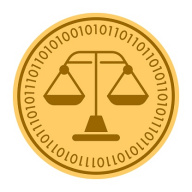 While most people were busy with last minute Christmas shopping, on December 20th of last year Representatives Warren Davidson and Darren Soto were busy finalizing and introducing the proposed new “Token Taxonomy Act” (HR 7356). The proposed Token Taxonomy Act seeks to modify both existing securities and tax laws to create a safe haven with respect to the issuance and trading of cryptocurrency assets. While the bill takes some novel approaches there are several items in the bill which I think both raise concern as well as hinder the chance that this bill will actually make it into law.
While most people were busy with last minute Christmas shopping, on December 20th of last year Representatives Warren Davidson and Darren Soto were busy finalizing and introducing the proposed new “Token Taxonomy Act” (HR 7356). The proposed Token Taxonomy Act seeks to modify both existing securities and tax laws to create a safe haven with respect to the issuance and trading of cryptocurrency assets. While the bill takes some novel approaches there are several items in the bill which I think both raise concern as well as hinder the chance that this bill will actually make it into law.
Background.
To understand what the bill attempts to do you need to first understand the impetus behind its drafting. As those in the industry know, save for a couple specifically noted exceptions (i.e. bitcoin and ethereum) the SEC has taken the view that the selling and trading of cryptocurrency/digital coins and tokens constitutes a securities transaction and must therefore be done in compliance with existing securities laws. For ease of reference, we can refer to all types of cryptocurrency/digital coins and tokens generally as “digital assets.”
With the SEC taking the aforementioned views regarding the selling and trading of digital assets, many would be digital asset issuers feel that compliance with existing securities laws is too cumbersome and costly. Further, many believe that existing U.S. securities laws are too outdated and ill equipped to be applied to the emerging digital asset industry which puts the U.S. at a disadvantage when competing in this market. Representative Davidson himself shared similar concerns in a press release last September where he stated:
Our Republic has a colorful history of over-complicating and occasionally frustrating the very spirit of enterprise that built our free market economy into what it is today – the world’s land of opportunity. The latest iteration results from regulatory arbitrage in the area of digital currencies, more specifically Initial Coin Offerings (ICOs), where innovations in distributed ledger technology (blockchain) have outpaced current law and court decisions.
Watching this early stage market develop I am encouraged by the massive potential of blockchain, which is the underlying technology of cryptocurrencies. This technology offers the prospect of new ways for businesses to raise capital to fund their growth here in America and offers innovative ways to detect and prevent fraud.
Meanwhile, early attempts to regulate digital currencies have frustrated entrepreneur’s dreams with complex regulation and costly compliance. New York’s BitLicense is a perfect example of this ineffective complexity. Disparate courts decisions and enforcement actions were causing capital to flee the U.S. for more certainty in foreign markets – like Switzerland. In May, I went public with a pledge to introduce a bill creating legislative certainty for the U.S. ICO market. This bill aims to clarify the roles of regulators, protect consumers, address national security concerns, and facilitate a pro-growth environment for companies to raise capital.
Now before we review the bill itself, it should be noted that in the opening paragraph above I intentionally stayed away from saying that the SEC deems all digital assets to be securities. While many people tend to draw that very conclusion from SEC statements over the last year or so that simply isn’t the fact. It is most often the transaction in which the subject digital asset is sold/traded as opposed to the digital asset itself which qualifies the transaction as a securities transaction subject to regulation.
Much of the confusion tends to come from a statement made by SEC Chairman Jay Clayton to the U.S. Senate back in early 2018 where he stated: “I believe every ICO I’ve seen is a security.” Many read this to mean that the SEC viewed all digital assets as per se securities. However, it was the offering transactions involving digital assets (i.e. the “offering” in “Initial Coin Offering”) that is the real the basis of the statement, not necessarily the respective digital assets. This can be seen in multiple subsequent clarifying comments from both Mr. Clayton and other regulators but probably most clearly in the comments made by Mr. Clayton in a recent interview with CNBC where he stated as follows (emphasis added).
A token, a digital asset, where I give you my money and you go off and make a venture, and in return for giving you my money I say ‘you can get a return’ that is a security and we regulate that … We regulate the offering of that security and regulate the trading of that security.
The highlighted portion of the statement makes it clear that there is more to determining whether the sale/trading of a digital asset amounts to a securities transaction which is subject to compliance. Specifically, it essentially pulls in the concepts from the Howey Test which is the benchmark for determining when a sale of securities has occurred. For a more in-depth analysis of this distinction, check out “Focusing on the How, Not the What: Making Sense of Recent SEC Guidance on Crypto Assets.” Now this may all seem like a meaningless technical distinction. However, in my opinion one of the biggest faults of the bill is that is that it ignores this distinction, focusing instead on exempting certain particular types of digital asset.
Analysis.
The bill itself essentially has two distinct elements (i.e. securities and tax modifications) and it is easier to review them separately. The first section relates primarily to amending the Securities Act of 1933 (specifically Section 4(a) thereof; 15 U.S.C. 77d(a)), and the Securities Act of 1934 (specifically Section 3(a)(10) thereof; 15 U.S.C. 78c(a)(10)), to specifically exclude “digital tokens” from the definition of “securities.” As spelled out in the bill a “digital token” would be a “digital unit” (being a representation of economic, proprietary, or access rights that is stored in a computer-readable format) which:
(a) is created:
(i) in response to the verification or collection of proposed transactions;
(ii) pursuant to rules for the digital unit’s creation and supply that cannot be altered by a single person or group of persons under common control; or
(iii) as an initial allocation of digital units that will otherwise be created in accordance with clause (i) or (ii);
(b) has a transaction history that:
(i) is recorded in a distributed, digital ledger or digital data structure in which consensus is achieved through a mathematically verifiable process; and
(ii) after consensus is reached, cannot be materially altered by a single person or group of persons under common control;
(c) is capable of being traded or transferred between persons without an intermediate custodian; and
(d) is not a representation of a financial interest in a company, including an ownership or debt interest or revenue share.
As you can probably see what the bill attempts to codify is a pure “utility token.” However, in my opinion this distinction misses the heart of the SEC’s concerns regarding digital assets. Carving out an exemption for a particular type of digital asset isn’t solving the problem; if anything it makes it worse.

Going back to the noted distinction above, the SEC is not concerned with digital assets per se. It is concerned with digital assets being offered/sold to the public in a manner which amounts to a securities transaction. Speaking of proposed Section (a)(iii) above specifically, the proposed bill basically carves out an exemption for an ICO of coins which otherwise meet the remainder of the definition. This might seem ok to crypto enthusiasts but it is against all of the guidance we have seen from the SEC to date. Specifically we know that the SEC views ICOs as meeting the Howey Test so this bill is proposing to specifically exempt what would otherwise be a securities transaction. This is something Clayton made clear in his CNBC interview that the SEC would not allow and, moreover, is not necessary:
“We are not going to do any violence to the traditional definition of a security that has worked for a long time … We’ve been doing this a long time, there’s no need to change the definition.”
While Congress can of course change the definition of securities, they haven’t before with any other asset class so why would they start now? Specifically because the above carve out really is no longer necessary when you take into account recent SEC guidance. This bright line distinction might have been more necessary back in May of last year when they started drafting this bill but the SEC subsequently released additional guidance which I believe adequately covers the majority of the points noted above. Such guidance includes a multitude of factors (many of which are similar to the qualifications identified in the exemption above) which will be considered by the SEC when applying the Howey Test to analyzing a particular digital asset transaction (for more on these factors see “Focusing on the How, Not the What: Making Sense of Recent SEC Guidance on Crypto Assets”).
Now don’t get me wrong, other than proposed Section (a)(iii) above, I think the above factor list is a good start in trying to identify a utility token from other forms of digital assets. However, these factors would be better presented as SEC guidance to interpreting the Howey Test rather than as a statutory exclusion from existing securities laws. For consumer protection alone, digital asset transactions need to, and should, be evaluated on a transaction by transaction basis. Creating a hardline exemption is extremely dangerous because it would allow any digital asset which meets the basic technical standards above to be completely exempt from securities compliance, and the related investor protections.
By way of example, under this proposed exemption an inexperienced issuer who  purports to be able to create a digital asset which meets the technical standards above, would not only be able to offer and sell such digital assets (or rights in them like a SAFT) instantly and without regulatory oversight, they would be able to promote these investments in any way they wanted (i.e. general solicitation). Moreover, if said assets were specifically excluded from securities regulations, those who chose to invest in such assets would not be afforded the protections available under existing securities laws (e.g. redress in the event the digital assets were never created/issued, fraud, etc.). The investor concerns present in this example alone clearly illustrate the issue with proposing a bright line exemption. For clarity, it should also be noted that the wholesale exclusion of ICOs pursuant to proposed Section (a)(iii) is inherently flawed on its own. The majority of the fraudulent activities we have seen in this industry have been at the ICO level and specifically exempting these transactions from securities regulations is extremely dangerous.
purports to be able to create a digital asset which meets the technical standards above, would not only be able to offer and sell such digital assets (or rights in them like a SAFT) instantly and without regulatory oversight, they would be able to promote these investments in any way they wanted (i.e. general solicitation). Moreover, if said assets were specifically excluded from securities regulations, those who chose to invest in such assets would not be afforded the protections available under existing securities laws (e.g. redress in the event the digital assets were never created/issued, fraud, etc.). The investor concerns present in this example alone clearly illustrate the issue with proposing a bright line exemption. For clarity, it should also be noted that the wholesale exclusion of ICOs pursuant to proposed Section (a)(iii) is inherently flawed on its own. The majority of the fraudulent activities we have seen in this industry have been at the ICO level and specifically exempting these transactions from securities regulations is extremely dangerous.
The second portion of the bill focuses on modifying certain portions of the Internal Revenue Code of 1986 (particularly Section 408(m) (Individual Retirement Accounts), Section 1031 (Like-Kind Exchanges) and Part III of subchapter B (Items Specifically Excluded From Gross Income) thereof) to exclude, or otherwise defer, the recognition of taxable gain in connection with the acquisition/trading of “virtual currency.” Specifically the bill proposes that the referenced tax sections be amended to provide that:
(a) gross income for tax purposes will not include gain from the sale or exchange of virtual currency for other than cash or cash equivalents (provided such excluded gains will be capped at $600 per transaction);
(b) investments in virtual currency will not be deemed “collectibles” for purposes of the IRA rules; and
(c) exchanges of virtual currency will be treated in the same manner as real property for all purposes of Section 1031.
While I believe that significant additional accounting/tax guidance with respect to investments in digital assets is greatly needed, the proposed modifications in the bill fall short on several fronts.
First and foremost, this portion of the bill oddly defines “virtual currency” differently then it defined “digital tokens” in the first portion. Under this section, “virtual currency” is defined as “a digital representation of value that is used as a medium of exchange and is not currency.” Ignoring all other issues for a moment, the fact that the definitions between the sections are not the same would only cause further confusion. Put another way, an investor who buys a “digital asset” based on the first section would then need to determine whether it qualifies as a “virtual currency” for the proposed tax rules.
Secondly, unless I am reading the proposed language wrong, the general gain exclusion would be capped at $600 per transaction. $600 really??? Talk about di-minimis. More importantly thought, above the $600 cap, how are gains in “virtual currency” transactions going to be treated? As the “virtual currency” assets would not be securities based on the bill’s own provisions in part 1, the only conclusion is that such excess gains will be treated as ordinary income (i.e. not capital gains) and taxed at the higher rate. That would be a BIG tax hit to digital asset investors.
Finally, with respect to the Section 1031 modification, I feel like someone just threw that in at the end and didn’t really understand how Section 1031 actually works in practice. Most importantly, under Section 1031, the proceeds from the sale of a real property need to be held, and moved to the acquisition of a new property, only by a “qualified intermediary.” For those that are not familiar, a “qualified intermediary” is an independent third-party (not your attorney, agent, broker or CPA) which takes all control of the funds being moved. Additionally there is paperwork and fees involved and it is not an instantaneous transaction. By simply saying that exchanges of virtual currency will be treated in the same manner as real property for all purposes of Section 1031 will subject them to the same “qualified intermediary” rules which I am certain was not intended.
Conclusion.
Additional guidance on the offering/sale of digital assets, and the tax treatment of gains/losses in connection with the trading of digital assets is absolutely necessary. This industry isn’t going anywhere and we need better guidance in those areas to help the industry grow in the proper way. However, this bill simply misses the mark on multiple fronts. While it’s a noble effort, I simply cannot see this bill going anywhere in its current form.
